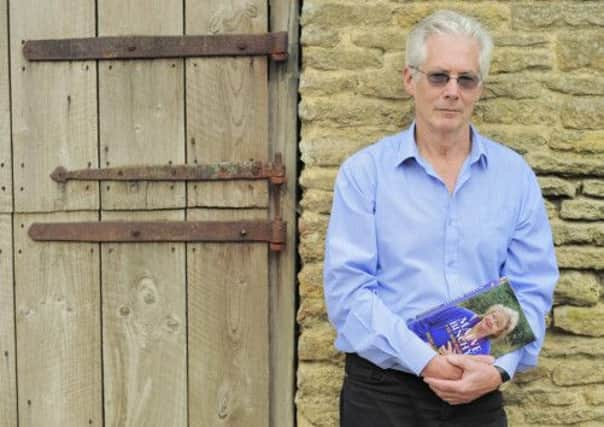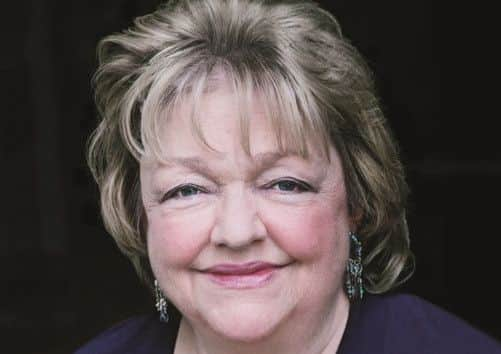The Big Interview: Piers Dudgeon


IN 2000, Piers Dudgeon travelled to Maeve Binchy’s home by the sea south of Dublin to discuss the possibility of writing her biography. They got along well, he says, but she decided she didn’t want it published in her lifetime.
Dudgeon, originally from Devon but living near the North Yorkshire coast for the last 20 years with his Yorkshire-born wife Dee, got on with researching the writer’s life for more than a decade, up to her death just over a year ago at 72.
Advertisement
Hide AdAdvertisement
Hide AdNow the biography has been published, and 12 years worth of notes and documents that delved into every corner of the novelist’s world have been carefully laid to rest.


“At that meeting she was everything I’d heard about Maeve Binchy – hospitable, larger- than-life, earthy, ready to laugh, clever and funny,” says Dudgeon. “But she also said ‘I’m not sure there’s much to write about me – I’ve had a happy, middle-class life’.”
True, Binchy’s life was comfortable and unremarkable when viewed superficially. She was the eldest of four children born to a Dublin barrister and his wife, a former nurse. Convent and University College Dublin-educated Maeve lost her Catholic faith in early adulthood, taught for a while, had love affairs with married men who failed her and moved into journalism at the Irish Times. Editors and readers loved her warm and witty slant on the world.
She travelled widely and alone, but looked after her widowed father in his older age, and eventually – after publishing a couple of volumes of short stories – wrote her smash hit first novel Light A Penny Candle in 1982 at the age of 43.
Advertisement
Hide AdAdvertisement
Hide AdIt was the story of a decades-long friendship between two girls from very different backgrounds set against the backdrop of a small town in rural Ireland.
She may have started relatively late, but the writer went on to turn out 16 more doorstop-sized novels – including Silver Wedding, Firefly Summer, Evening Class, Echoes, The Copper Beech, Circle of Friends, Tara Road. Her final book was published after her death.
All compulsive page-turners, they deal in human relationships and often feature betrayal. In a list of Ireland’s bestsellers of the 20th-century, Binchy’s books took first, third and fourth places.
The early works focus on 1950s and 60s Ireland – although Binchy never reflected Ireland’s political struggles – telling the country’s social history via the microcosm of a small community, using strong characterisation, the dynamics of friendship and the vital promise that good will naturally triumph over evil.
Advertisement
Hide AdAdvertisement
Hide AdBinchy never experienced motherhood, although she met, married and was happily devoted for the rest of her life to broadcast journalist and children’s writer Gordon Snell and they longed for a family. Maybe it’s because of this that she mainly wrote about adult relationships and the bedrock of her books was female friendship. When the money from Light A Penny Candle came in, says Dudgeon, she quietly gave a lot of it away.
What takes some of the cosy edge off the novels is the betrayal at the heart of her stories – a theme that came out of her own experience, despite having grown of up in a solid middle-class family with doting parents and with no material need unmet.
“Maeve was sent off to school each day by a mother who told her she was the most beautiful, the cleverest and the best in every way,” says her biographer. “Her father William told her she’d be the most popular girl in the school.”
But there was a huge disconnect between this confidence in her looks and talent and her experience of its effect on the world. “She wasn’t the most popular girl and her school friends told me she didn’t stand out at all,” says Dudgeon. “Nor did boys want to dance with her.”
Advertisement
Hide AdAdvertisement
Hide Ad“I think the theme of betrayal that is so strong in the books comes out of this gulf between the sense of herself and confidence her parents gave her and how people reacted to her in the world outside,” says Dudgeon. “She really suffered because of it.”
Like many who reject God, says Dudgeon, she “remained sensitive to his absence” and perhaps always sought to fill a vacuum.
Success and happiness in her marriage to Gordon gave Maeve all the confidence she needed, says Dudgeon. And through her columns for the Irish Times she had found her natural voice, writing with passion and humanity on subjects she cared about greatly.
Dudgeon grew up in a small village in south Devon, where his vicar father set about rebuilding a church and community that had been ravaged by the Second World War. He says experiencing that rebirth gave him a strong sense of belonging.
Advertisement
Hide AdAdvertisement
Hide AdAlthough the family didn’t have any money, young Piers got into Exeter Cathedral School and later studied philosophy at Nottingham University, before drama school. But he chose then to go into publishing and after a decade as an editor in London founded a paperback imprint and his own publishing company, specialising in factual books in collaboration with well-known writers such as Peter Ackroyd, Daphne du Maurier, Catherine Cookson and John Fowles.
He has published 31 books, including biographies of Edward de Bono, JM Barrie, composer Sir John Tavener, Catherine Cookson, Josephine Cox, Barbara Taylor Bradford and now Binchy. He says he is particularly drawn to these women writers who “made a huge effort to pull themselves up by their roots from their backgrounds and take control of their lives... I like that strength”.
Cookson, the north-eastern author of more than 100 novels who was for years the most borrowed writer in UK libraries, hit gold dust straight away with her fiction – the hardback of Kate Hannigan (1950) sold 125,000 and her first royalty cheque was for £105,000. Hers were stories of people ground down by circumstance, and Cookson knew what she was talking about, having worked her way up from illegitimacy and the laundry of a workhouse to become a Sussex teacher’s wife. She started to write as therapy, following miscarriages and a nervous breakdown.
“I found out that having a breakdown and going to an asylum for a while had given her access to who she really was and who her people were,” says Dudgeon, whose previous collaborations with the author on factual books led to friendship and her co-operation with his suggestion of writing her own story.
Advertisement
Hide AdAdvertisement
Hide AdDid friendship hinder the objectivity of his exercise in writing that first biography? “No, she was always very tough and anyway, if anything was wrong she’d come down on me like a ton of bricks. I admire that in a woman.”
When it came to writing Barbara Taylor Bradford: The Woman Of Substance (2005), it was Dudgeon’s research that uncovered facts around her maternal grandmother’s life which were to shock Barbara immensely. When he sent a proof of the finished book to BTB, who lives with her husband Bob in New York, she read for the first time that her mother Freda and Freda’s younger sister and brother had all been illegitimate.
Also, Freda and her mother Edith had twice – in 1907 and 1910 – been thrown on the mercy of the Ripon Workhouse. “Barbara cried for a week over the story,” says Dudgeon. “She rang me a week later, still crying, and asked me to meet her in Paris and show her all the documents I had found. At one point she didn’t want these details put in the book, then changed her mind.”
Part of Barbara’s grief about the story was that she had been very close to her mother, until her death in 1981, and Freda had never told her about having been in the workhouse as a child. Freda had always been vague whenever Barbara asked about her childhood, and made a life’s work out of determination that Barbara would be well educated, confident and realise her every dream. She was realising Freda’s dream, too.
Advertisement
Hide AdAdvertisement
Hide Ad“What I come back to and find most astonishing,” says Piers Dudgeon, “is that somehow Barbara seems to have been subconsciously in touch with her roots because she had written Freda’s and Edith’s history into her novels way before this information came to light”.
Maeve Binchy’s story, although not one of rags to riches, can be defined by her own words, that she decided to take control her life and “be the best ugly duckling I could be”. “After she came to terms with this and asserted some personal autonomy, Maeve became a sort of embodiment of what it was to be Irish – a teller of stories about the everyday, using natural, conversational language to tell them.
“In her later books she left behind the Ireland of her youth, but in all her writing she showed compassion and concern for the person who wasn’t fashionable. She felt she was that person, too.”
One of the best quotes Dudgeon says he found from one of her fan letters was: “The great thing about Maeve is that she has never marginalised any of us.” No doubt she’d have been very happy with that.
Maeve Binch – The Biography is published by Robson Press, priced £20. To order through the Yorkshire Post Bookshop call 01748 821122 . Postage and packing costs £2.95.